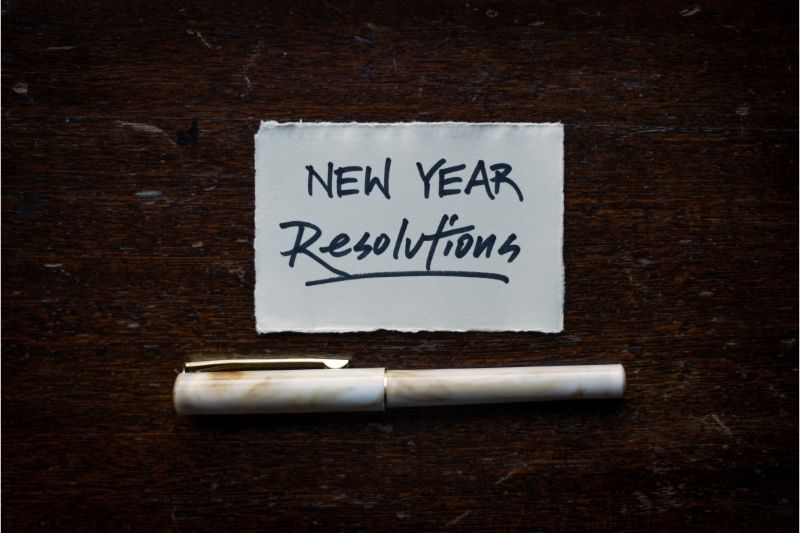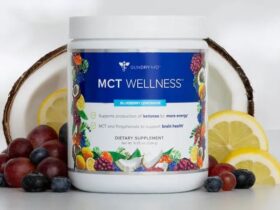No products in the cart.
15 New Year’s Resolutions for Addiction Recovery

Addiction Recovery can be hard and daunting especially after the holidays. It can be a challenging task starting the New Year with a sobriety goal, but possible to maintain it. Addiction recovery is a continuous process that ensures the transition to a new and healthy life devoid of addictive behaviors.
Making New Year’s resolutions and abiding by them is a whole other issue altogether. Regrettably, making resolutions and sticking to them are two very different things. In truth, only approximately 8% of people in the United States keep their New Year’s resolutions. One of the most significant obstacles to people achieving their objectives is that their goals are unrealistic, to begin with.
Learning how to stick by your goals and resolutions can guide individuals on their way towards a fulfilled and accomplished year. New Year goals should be SMART and realistic to heighten their chances of success. SMART goals are precise, measurable, attainable, relevant, and time-bound. Below are some 15 New Year approaches that will make one focused and driven towards maintaining an addiction-free life:
-
Pick up new hobbies and passions
Individuals who seek to recover from addiction often need to stay busy to ensure that they can refrain from excessive drug usage. When you were struggling with addiction, you probably spent a lot of time looking for and using drugs. You might be bored now that you’re back on your feet. Relapse is frequently caused by boredom.
Staying in recovery entails fundamentally altering the way you think about and spend your spare time. Though the prospect of quitting unhealthy associations and discovering new interests can be unsettling, it also presents the opportunity for tremendous personal growth and joy. New hobbies will keep one busy and give you a sense of purpose and confidence as you progress in your recovery journey.
-
Physical exercise
Physical exercise enables the body to release endorphins, which are natural pain relievers that act similarly to opioids and depressants. The endorphins make the individual feel calm and happy, which in turn decreases drug cravings and helps one stay sober. The recommended exercise routine per week is at least 150 minutes of moderate exercise and 75 minutes of rigorous exercise. Getting healthy should be a part of addiction treatment. Regular exercise is one of the most effective strategies to aid your body’s recovery. Set precise and verifiable fitness goals to help you keep on track and accountable, rather than making a broad commitment to exercise more.
-
Change your meeting routine
New meetings should be attended. Maintaining and expanding your support system is critical in recovery. If you haven’t already done so, one of your addiction recovery resolutions could be to find a meeting in your region and attend twice a week. If you presently attend a regular meeting, consider switching to a different venue or starting a new one. We can connect you with dozens of local addiction treatment resources thanks to our partnerships with Silver Linings Recovery Center.
-
Refrain from negative thought patterns
Addiction is frequently triggered by harmful thought patterns, which can be based on erroneous logic or become grossly exaggerated if left unchecked. When your negative thoughts start to spiral out of control, one of your addiction recovery resolutions should be to question them. When toxic thoughts arise, make an effort to study them and break them down. You should also try to see the bright side of things. This shift in perspective can significantly alter your view on life.
-
Journal writing
Keeping a record of thoughts and feelings enables an individual to remind themselves of their goals and what they want to achieve. This helps one understand their emotions, triggers, and what keeps them aligned and focused on their goals. Journaling also helps one stay on track and identify coping strategies that help them on their sobriety journey.
-
Have a growth mindset
Addiction recovery is an ongoing process, thus having a growth mindset is important to ensure that one stays on the path of recovery.
-
Refrain from too much social media
It is important to set healthy boundaries with social media to avoid falling back into old habits and patterns. Excessive social media also aids depression and anxiety. Having some basic boundaries will ensure that your screen time is healthy and not unproductive.
-
Attend support groups
Support groups enable one to cope well with addiction recovery as they are engaging with people who are facing the same challenges. Finding one which is within your area will significantly raise the chances of recovery success.
-
Meditation
Meditation frees and grounds the mind making an individual able to stop cravings that might propel them back to addictive habits. There are guided meditations online for those who have never tried it before.
-
Celebrate every milestone
To ensure long-term recovery, it is best to celebrate every milestone and pat yourself on the back. This helps to build confidence and trust in oneself, therefore making the recovery process easier.
-
Mend social relationships
As addiction takes away from social relationships, this might be the time to mend them by reaching out and spending quality time with those you love. This helps one have a strong support system thus being comfortable enough to open up and share.
-
Practice gratitude
Some people never survive chronic addiction, while others never get a chance to restore their lives. Therefore, take time to count your blessings and remain grateful for every little thing.
-
Forgiveness
Addiction often comes with shame and guilt, especially to the user. This year, the purpose is to forgive yourself and open up a new chapter of healing. Some days might be harder than others, and these are the days to learn and recognize one’s mistake and see this as a stumbling block towards recovery. Stumbling back right on track will prevent one from going back to old habits.
-
Practice random acts of kindness
Being purposeful in being kind and appreciative is a sure way to stay on track with addiction recovery. Being free from addiction will help one restructure their lives to be of service to others, therefore feeling more fulfilled and content.
-
Enhance your spiritual connection
Connecting to a higher power will help in the recovery process. For instance, attending worship services or spiritual connectedness will broaden an individual’s social circle and make them feel connected with their soul.









Leave a Reply